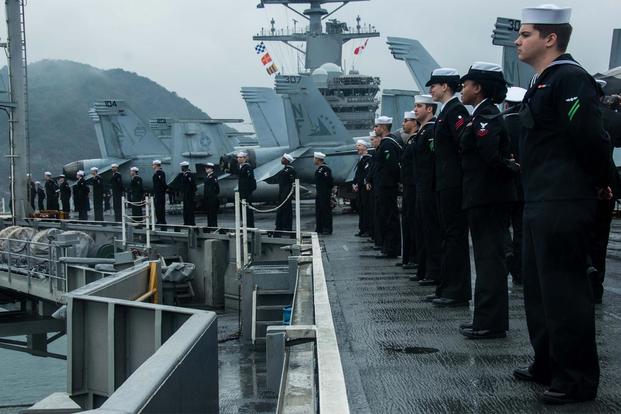Frances Salazar is a former Navy petty officer first class and recipient of the Raytheon SPY-6 Scholarship Award.
In 2018, Hispanics accounted for 15% of active-duty Navy sailors; women accounted for only 19%. I proudly represent both of those demographics and used my diversity to craft noteworthy experiences during my time of service.
But my story is not unique. Every warfighter's upbringing and future aspirations directly affect their time of service. While my story is just one of thousands, it's a real-world example of how a diverse background serves as a central tenet to military experiences, and how embracing personal experiences helps servicemen and women hone skills for success.
Breaking Traditional Career Paths
As a Latina coming of age in the American Southwest, I witnessed firsthand the vulnerability of undocumented immigrants fleeing horrific conditions. When immigrants arrive in the United States, many face language barriers that force them to work long hours for minuscule wages without health care access. Many struggle to find a job paying livable wages despite their level of education or asylum status.
Further, with 18% of foreign-born Hispanics living in poverty, and only 12 percent earning a bachelor's degree or higher, it is extremely difficult for Latino families to retain an attorney to help with the American citizenship process, thus denying them the American Dream. After seeing the cycle of poverty hold Latinos back, I came to a realization: To accomplish my American Dream, I must work to protect and advocate for my community. While my career aspirations shifted over the years, after my Navy service ended, I decided to become a lawyer focused on immigration policy and reform.
For many young Americans, this goal would be accomplished by starting college at 18 and then moving on to law school in their early twenties. However, as the thousands of soldiers who enlist before earning an undergraduate degree understand, the traditional path is not always a viable or right option. We warfighters must take time to reflect on our aspirations and use our time in service to build a foundation that will lead to success once we enter the civilian workforce.
Investing in Experiences
My time in the Navy allowed me to hone the skills needed to turn my dream into reality. I served on five ships in a three-year timeframe throughout Latin America and the Caribbean. As a leading petty officer in charge of a division, I headed a team whose responsibility included force protection of the crew and ship.
I made a point to take advantage of my Spanish-language skills to further my success during my time in the Navy. I served as the official translator for the commodore and commanding officers during Operation Handclasp and the Partnership of the Americas, translating for meetings with dignitaries, foreign navies and at public events. Outside of my official duties, I provided language training to increase the proficiency levels of trained and volunteer translators to improve their scores or pass the Defense Language Proficiency Test, which benefited them both financially and professionally in their military careers.
I also developed a basic conversational course for the ship's crew while in Latin America, and translated between medical teams and the Latin American community. I had the honor of engaging with patients from various countries and backgrounds who shared their triumphs and heartbreaks with me during their treatment. It was the hardest but best part of my deployments because of its profound impact on me.
While my dedication to streamlining communications with local communities helped my crew, it also helped me develop skills that are essential as an immigration lawyer. My work taught me patience and how to effectively advocate for disadvantaged groups of people, and showed me the importance of being patient and resilient. When working with populations from other cultures, a willingness to accept setbacks is critical, because they will occur. Problem-solving and flexibility are crucial, and to succeed, you must focus on long-term goals -- because, in reality, no one can solve the systemic issues that underrepresented groups face.
A Clear Future
While my path to law school may be untraditional, it solidified that I have the skills needed to make my lifetime goal a reality. Currently, I am on track to graduate from The George Washington University in 2022 with a Bachelor of Arts in International Affairs. I was also recently awarded the Raytheon SPY-6 Scholarship, which is given to sailors who are pursuing an undergraduate or graduate degree and demonstrate leadership in their local community. This scholarship will help me complete my degree while I gain experience through fellowships in preparation for law school.
By investing in personal experiences that make me unique and using them to find a greater purpose, I was able to find success. Warfighters who are about to enter service, as well as those who are looking to craft their post-service path, should dig deep and identify what makes them different, then capitalize on the skills associated with that uniqueness to become a driving force within the military.
Together, we must celebrate the diversity within our community, as what makes us different makes us strong.
-- The opinions expressed in this op-ed are those of the author and do not necessarily reflect the views of Military.com. If you would like to submit your own commentary, please send your article to opinions@military.com for consideration.














